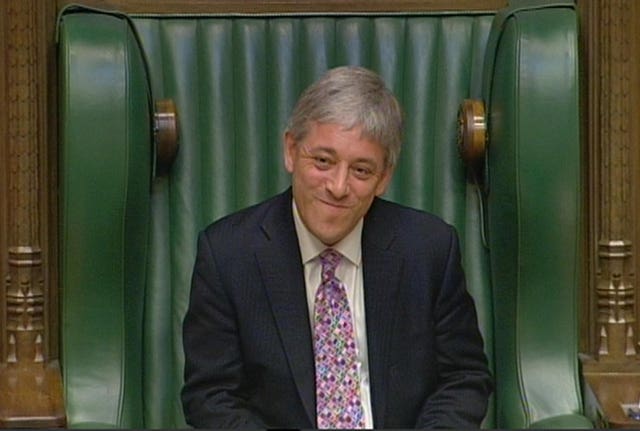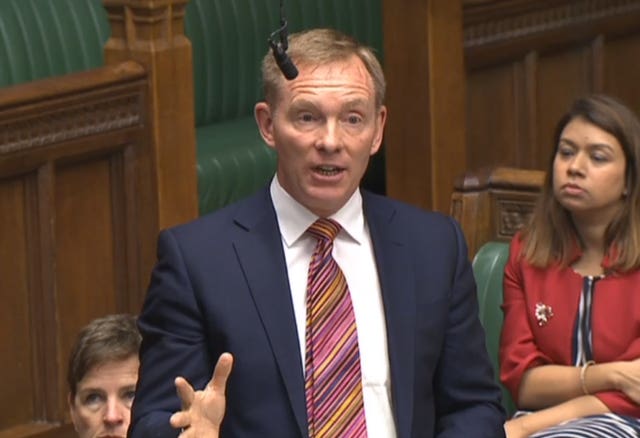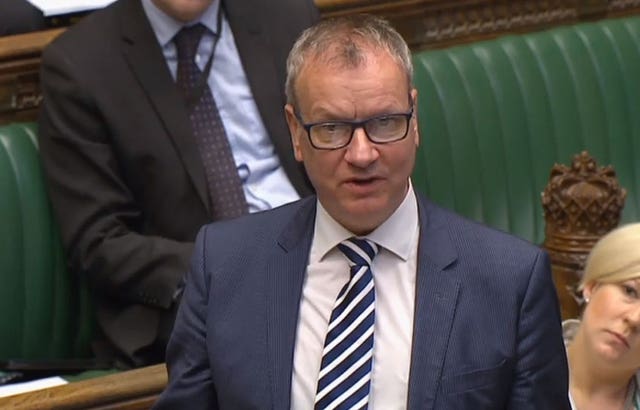Who could replace John Bercow as Speaker and how are they chosen?
A successor must be found after the former Tory MP said he would stand down on the current Brexit deadline.

MPs have begun their posturing to replace John Bercow as Commons Speaker, a role that has become increasingly prominent amid the chaos of Brexit.
The former Tory announced on Monday that he would relinquish the role on October 31 – the current EU departure deadline – and step down as MP for Buckingham.
Here, the PA news agency looks at who the Speaker is, how a replacement will be found and who that might be.

– What exactly does the Speaker do?
More than just yell “orderrrrrr” at unruly politicians.
As well as maintaining discipline in the House, the Speaker is an MP who chairs debates between their colleagues.
They must remain politically impartial at all times.
Mr Bercow has been accused of falling foul of this over the years, particularly by Conservatives.
He has also received praise for empowering backbenchers – though not from the governments trying and failing to force through Brexit legislation.
– How will the new one be selected?
Mr Bercow’s replacement will be chosen during a day of drama.
Candidates will hand their nominations over to the Commons Table Office in the morning, having secured the backing of at least 12 MPs, including three from a different party.
A list of the nominees will go live on the Parliament website at around 11am, before MPs file into the Commons for 2.30pm to hear speeches delivered by each candidate.
Then the voting begins.
Each MP is handed a ballot paper and has 30 minutes to make their selection – in secret. Who voted for who will not be revealed.
If a candidate gets more than half the votes then they are automatically elected.
But, if not, any candidate with less than 5% of the votes or the candidate who comes last will be eliminated.
The process will then be repeated until someone secures more than half the votes, or one candidate remains if competitors drop out.
A motion is then put to the House suggesting the selected MP as Speaker and, if agreed, the winner will take to the all-important chair.
As yet, the Commons has been unable to advise the date of when the election will take place.
– And who might replace Mr Bercow?

Sir Lindsay Hoyle, 62, is currently Deputy Commons Speaker and chairman of Ways and Means. The Labour MP for Chorley is a popular and experienced figure in the House, having first been elected as an MP in 1997.
Dame Eleanor Laing, 61, also serves as Deputy Speaker and deputy chairman of Ways and Means. She has been a Tory MP for Epping Forest since 1997. Dame Eleanor is well liked and respected across the House and, while acting as Deputy Speaker, has shown skill in guiding proceedings.
Harriet Harman, 69, a former interim Labour leader, has also thrown her hat into the ring to be the next Commons Speaker. Ms Harman, who first became an MP in 1982, is also a former leader of the Commons. Her experience would stand her in good stead to take on the Speaker’s chair.
Sir Edward Leigh, 69, has been a Tory MP since 1983. An outspoken figure on the back benches, Sir Edward has championed Brexit and opposed the idea of a second referendum on leaving the EU.
Sir Henry Bellingham, 64, who was first elected as a Tory MP in 1983, is also in the running. Speaking on Sky News, Sir Henry said the next Speaker needs to be firm, but not “rude”.
Meg Hillier, 50, is the Labour MP for Hackney South and Shoreditch. She has previously served as shadow energy secretary.
Chris Bryant, 57, is a Labour MP who has previously been shadow leader of the Commons and deputy leader of the House of Commons. Mr Bryant has said he would be interested in being the next Speaker. He has previously spoken out in favour of a second referendum on Brexit.
– Who might yet confirm they’re interested in running?

Pete Wishart, 57, has been an SNP MP since 2001. A colourful character in the Commons, Mr Wishart is known for his jokes and sense of humour in the chamber. This could serve him well should he decide to contest the Speaker’s chair. Mr Wishart is also a founder member of the parliamentary rock group MP4.
Dame Rosie Winterton, 61, a Labour MP, is the second deputy chairman of Ways and Means. Having been an MP since 1997, she has previously been a shadow leader of the Commons and has held many ministerial positions, including in transport, health and regional affairs.





